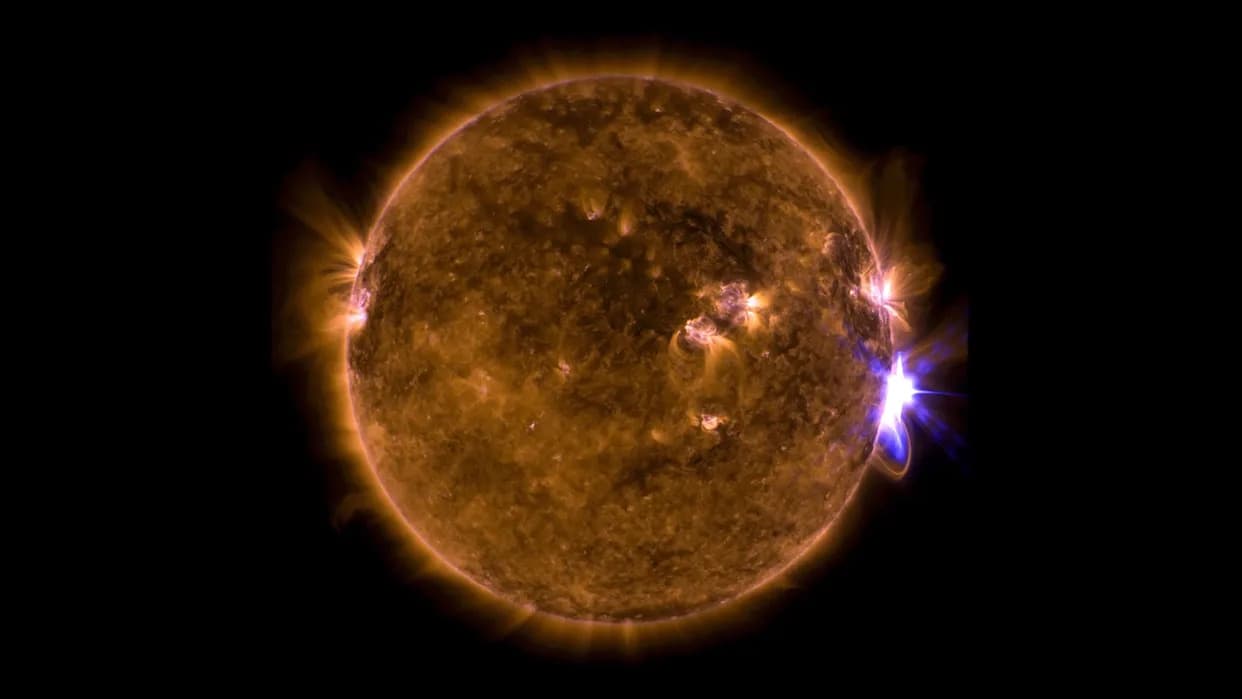This week's science roundup covers several standout items: a rare triple solar eruption produced auroras visible as far south as Florida; analysis of 15,000 rock‑paper‑scissors rounds shows true randomness outperforms strategies that rely on the previous move; a cohort study found coffee drinkers had a 39% lower relative risk of recurrent atrial fibrillation over six months; and bumblebees learned to distinguish long and short light flashes, a simplified Morse code. Other reports include a berry extract that normalized metabolism in diabetic mice and simulations indicating the equator is the likeliest ISO impact zone.
This Week in Science: Spectacular Auroras, 'Morse' Bees, Coffee & the Secret to Winning Rock‑Paper‑Scissors

This week in science brought a mix of dazzling sky shows, surprising animal intelligence, human-health findings, and simulations that reshape how we think about cosmic impacts. Below are concise, well-sourced summaries of the top stories and what they mean.
Auroras as far south as Florida
The Sun launched a rare "triple cannibal" sequence of coronal mass ejections that converged on Earth nearly simultaneously, producing an auroral storm visible at much lower latitudes than usual — including reports as far south as Florida. The three eruptions overlapped in space and time, intensifying the geomagnetic disturbance and pushing the auroral oval well below its typical range.
How to win at rock, paper, scissors: be truly random
An analysis of 15,000 rounds of rock, paper, scissors finds the clearest strategy for unpredictability: choose genuinely at random and do not rely on the previous round. The researchers report that only the brains of players who lost the prior round showed traces of the earlier play; winners' brains did not. The team concludes that overreliance on past outcomes reduces unpredictability and therefore weakens performance when randomness is the goal.
"When trying to be unpredictable, it's not helpful to rely on past outcomes," the researchers write.
Coffee and atrial fibrillation: lower recurrence in drinkers in one study
In a cohort of patients treated for atrial fibrillation (AF), those who drank coffee had fewer recurrences over six months than abstainers. Researchers tracked AF episodes lasting more than 30 seconds: 47% of coffee drinkers experienced at least one episode versus 64% of non‑drinkers — a 39% lower relative risk in this sample. These results are intriguing but observational; they do not prove causation and clinical advice should come from a physician.
Berry extract restores metabolism in diabetic mice
Lab research indicates a berry extract used in traditional Chinese medicine can normalize blood sugar and lipid metabolism in diabetic mice. Unlike some glucose‑lowering drugs, the compound appears to help restore broader metabolic balance in these animal tests. "Instead of just lowering blood sugar like most medications, this plant extract appears to help the body regain its natural metabolic balance," says organic chemist Huilan Yue of the Northwestern Institute of Plateau Biology in China. Further work is needed to test safety and efficacy in humans.
Interstellar objects most likely to hit near the equator
Simulations of interstellar object trajectories suggest Earth's equatorial regions are statistically the likeliest locations for ISO impacts. Seasonal effects also matter: ISOs with the highest impact velocities are more likely to arrive in spring, when Earth moves toward the solar apex; winter brings more frequent potential impactors because Earth then faces the solar antapex, the direction the Sun is moving away from.
Bumblebees learn a simplified 'Morse code'
Behavioral experiments show bumblebees can be trained to associate long and short light flashes with a food reward — effectively learning a simplified form of Morse code based on duration. The finding suggests that encoding and processing time duration is accessible to relatively simple nervous systems. "This surprising ability to encode and process time duration might be a fundamental component of the nervous system that is intrinsic in the properties of neurons," says Alex Davidson, a behavioral scientist at Queen Mary University of London.
Taken together, these findings illustrate the diversity of current scientific work — from space weather and planetary risk to animal cognition and potential medical leads — and highlight areas for follow‑up research.
Help us improve.


































